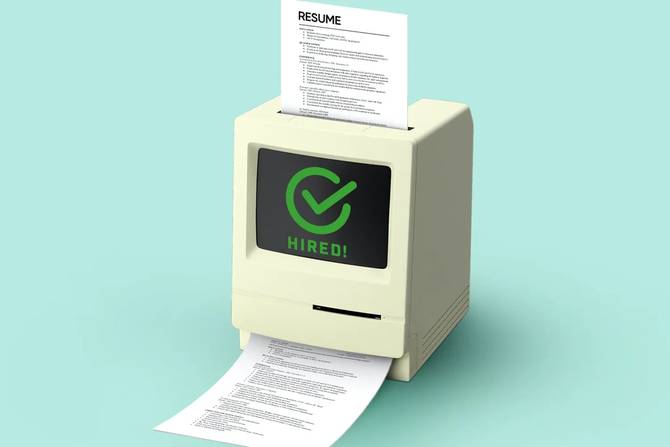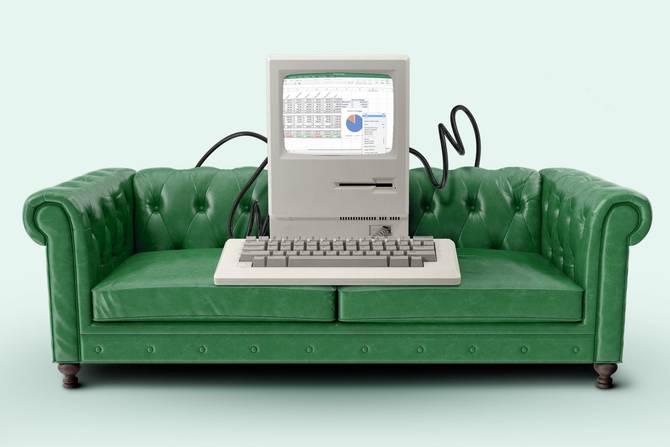Hello, HR world. Does your company offer any learning credits? With the clock ticking down to the new year, perhaps you can take advantage of free money to learn. The Brew’s upcoming Business Essentials Accelerator is a great way to get up to speed on communication, operation, and innovation—all to help you learn more about your business. Apply here!
In today’s edition:
 Gone Gone fishing freelancing
 Starting up Starting up
 Things are not always what they seem Things are not always what they seem
—Aman Kidwai, Sam Blum, Eoin Higgins
|
|
Michael Prince/Getty Images
As HR leaders grapple with retention amid a potential recession and volatile talent market, another challenge is emerging: Employees are increasingly choosing to work independently.
Independent workers make up approximately 36% of the US workforce, up from 27% in 2016, according to McKinsey. And it’s not just younger workers: Though millennials perform gig work at the highest rate (34%), baby boomers aren’t far behind (26%), per a 2021 report by MBO Partners. Some freelance out of choice, while others do so out of necessity; many do it to supplement their salaries.
The availability of freelance work for specialized jobs with high pay—like on Catalant, a platform for independent contractors who specialize in strategic consulting—is what corporate HR leaders are often up against in their constant battle for talent.
New needs, new people. “Covid has made executives think pretty differently about how the company is going to get work done,” explained Patrick Petitti, CEO of Catalant. As the corporate use cases for freelancing expand, so have the platforms for hiring from this talent pool.
Petitti said Catalant has seen spikes in demand for talent specializing in mergers and acquisitions, supply-chain management, and strategic planning from its large corporate clients. Small and medium-sized businesses in the US, meanwhile, are increasingly using contractors for administrative, consulting, and creative work, according to a recent report from HR software firm Gusto.
Why they do it. While the idea of “being your own boss” might sound attractive, independent work comes with challenges—chief among them a lack of financial stability.
But the rapidly-evolving nature of work—more remote, global, and skills-focused—along with the emergence of platforms like Catalant and A.Team, is changing the math. Raphael Ouzan, founder and CEO of A.team, a freelancer platform with $60 million in funding from Tiger Global, Spruce Capital Partners, and Insight Partners, offers another reason why freelancing is surging. Keep reading here.—AK
Do you work in HR or have information about your HR department we should know? Email [email protected] or DM @AmanfromCT on Twitter. For completely confidential conversations, ask Aman for his number on Signal.
|
|
|
Once COVID-19 brought hybrid and remote work to the mainstream, companies had to come up with ways to keep distanced teams engaged. And we still have work to do: Studies show 80% of employees don’t feel fully invested at work.
Whether your team is struggling to stay connected or you just want to stay proactive, check out Workday Peakon’s Seven Predictions on the Future of Engagement.
Workday Peakon’s employee engagement series gathered data from real employees, examining what kept them engaged (and what didn’t). Armed with that data, they predicted the next decade of employee engagement will include:
- a more employee-centric company culture
- technology-enabled hyper-personalization
- employee feedback embedded into workflows
Are you ready for what’s coming? Get the full story and read Workday Peakon’s predictions here.
|
|
Happl
On Tuesdays, we get into the weeds with the founders of HR tech startups. Want to tell us about your company? Get in touch here.
Ben Towers is the co-founder and CEO of Happl, an employee benefits and recognition platform that aims to streamline the HR tech stack into one simple interface. In addition to providing teams personalizable benefits and perks, it handles much of the administrative work that makes benefits possible. Since its founding in 2020, Happl has raised $2 million from a variety of investors, including Y Combinator. We spoke to Towers about combining the often disparate pieces of the HR tech puzzle into a single platform, how employees can harness Happl to decide which benefits and perks are right for them, and the future of HR tech.
What product or service does your company offer? We’re an employee engagement platform. We have managed rewards, recognition, and employee benefits.
We have two different portals: One allows the employee to get access to everything from their health insurance, their well-being, learning and development, work-from-home budgets and allowances. Then managers also get a platform to be able to support their teams.
What kind of rewards and recognition are we talking about? You’ve got the obvious ones, like gifting…But sometimes it’s as simple as a public recognition—just showing this person did well this week. But the bulk, I would say, is more like selling physical products or digital gift cards.
What specific issue in HR does your company intend to solve? Keep reading here.
Want to be featured in an upcoming edition of Starting Up? Click here to introduce yourself.
|
|
Francis Scialabba
A passing glance at the headlines and you might think Big Tech is all but up in flames. Layoffs are up, earnings are down, and hiring is on ice at some of the biggest names in the business. But, as IT Brew’s Eoin Higgins recently reported, that’s not the whole story.
[Chicago-area technical recruiter Alexander Finch] told IT Brew that, broadly speaking, people entering the workforce with the skill sets needed to succeed in the IT sector are going to be in luck. They’ll just need to temper their expectations for what their jobs look like. Salaries won’t likely be as high and budgets internally may be restricted, meaning that opportunities for bonuses and raises may be harder to come by.
“If they were making $100,000, now the budget’s $75,000—these very direct cuts are being made,” Finch said. “Even if the jobs are there, there’s definitely a lot of belt-tightening going on right now, and I think at the entry level, it’s always gonna feel the hardest.”
[ZipRecruiter chief economist Julia Pollak] agreed. She explained that while there are plenty of jobs, income expectations may need to be tempered to meet new realities.
“I think this pandemic has given us a tale of two job markets,” Pollak said.
Keep reading on IT Brew.—EH
|
|
TOGETHER WITH EIGHTFOLD AI
|
|
The perfect talent recipe: Cooking up a great talent process is tough. It requires many individual ingredients: leadership, experience, vision. But to drive outcomes, you must focus on the whole pie. Luckily, Eightfold AI has the goods. This Understanding Talent Intelligence report shows how AI can strengthen your talent process and maximize your workforce’s potential. Read here.
|
|
Today’s top HR reads.
Stat: The US leisure and hospitality industry added 88,000 jobs last month, more than any other sector. (CNBC)
Quote: “Strong wage growth is a good thing…But for wage growth to be sustainable, it needs to be consistent with 2 percent inflation.”—Federal Reserve Chair Jerome Powell discussing the labor market, interest rates, and inflation (the New York Times)
Read: With salary transparency on the rise, workers are feeling more empowered to ask for raises—or at least scrutinize the fairness of pay policies. (the Wall Street Journal)
|
|
-
Apple is speeding up its plans to move some of its production out of China as public protests over Covid-19 precautions mount.
-
Crypto industry job-cuts are continuing, with the latest coming from Bybit, Swyftx, and Kraken.
-
Activision Blizzard employees in Albany voted to unionize, becoming part of the Game Workers Alliance.
-
Meta is scaling back on office space in NYC and LA, while TikTok is growing its footprint.
|
|
Catch up on the top HR Brew stories from the recent past:
|
|
|








